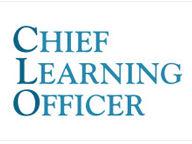Faculty News
—
Professor Aswath Damodaran discusses return on invested capital (ROIC) as a financial metric
—

Excerpt from The Wall Street Journal -- "New York University finance professor Aswath Damodaran said ROIC is a lazy shortcut for executives, because companies should have visibility into the cash flowing from projects on a more granular basis. 'I could write a paper on perverse ways you could destroy your company by raising your ROIC,' he said."
Faculty News
—

Excerpt from The Wall Street Journal -- "New York University finance professor Aswath Damodaran said ROIC is a lazy shortcut for executives, because companies should have visibility into the cash flowing from projects on a more granular basis. 'I could write a paper on perverse ways you could destroy your company by raising your ROIC,' he said."





















